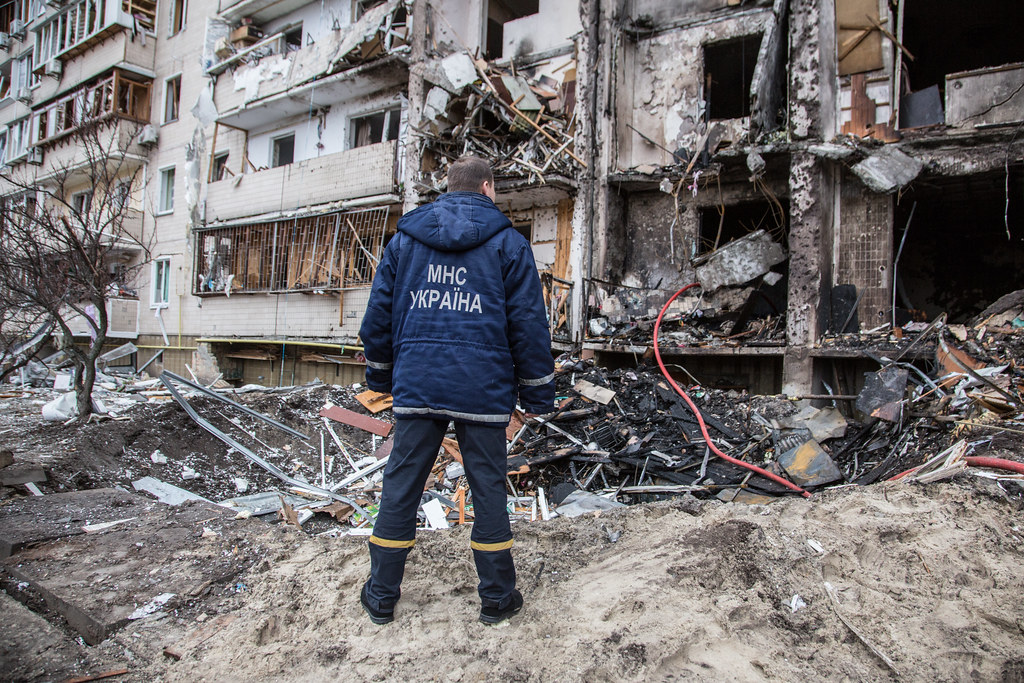Here’s what investors have in mind (and what they fear) for post-war Ukraine. Report Ft

The risk of Western governments phasing out support is prompting Ukraine to look towards private financing and investors are studying which sectors, after the war, might be more attractive. However, a shadow remains over the country that holds them back…
Kiev officials have made several trips to London to promote investment in the country, where reconstruction could cost around $349 billion, according to estimates by the World Bank and the European Commission.
Some investors, writes the Financial Times , are nervous about Ukraine's corruption record before the war and are unlikely to release funds before the end of the conflict. But some asset managers are looking into potential investments in Ukraine itself and in European companies that are potential suppliers of much-needed materials and equipment, especially since Russia has stepped up attacks on Ukraine's energy infrastructure.
“We have to hope and prepare,” said Alexandra Morris, investment director at Skagen Funds. “It can be difficult to think of investment opportunities in such tragic circumstances, but for active value investors a successful war outcome will present many opportunities…we prefer [to act] sooner rather than later.”
Earlier this month, Ukraine's Deputy Economy Minister Oleksandr Gryban told delegates at the Ukraine Infrastructure Forum in London that the country "will become one of the best in the world in terms of opportunities" for investors.
And he added: "We are working on instruments for insuring political and military risks and on developing fund structures to attract private investment".
Also last month, the Ukrainian government signed a memorandum of understanding with BlackRock Financial Markets Advisory – which is separate from BlackRock's asset management arm and does not carry out any investment business – to help Kiev attract investors.
At the Ukrainian Investment Roadshow hosted in London in November by the Strategy Council, a body representing European companies, several investors told the Financial Times that they are actively considering investing in companies in Ukraine and neighboring countries.
Much of Ukraine's funding so far has come from governments and international public financial institutions such as the European Bank for Reconstruction and Development, which has raised €1.4 billion since the war began in February. However, the risk of Western governments phasing out support is pushing the attraction of private finance.
“I have heard that 2023 looks financially secure, but the rhetoric coming from the United States is worrying,” said Mykhaylo Demkiv, a financial analyst at ICU, a Ukrainian wealth management and advisory firm, referring to calls for some US politicians to reduce support.
CrossBoundary, an investment management and advisory firm focused on emerging markets, is working with four investment management teams to develop Ukraine-focused debt and equity funds. A multi-sector fund targeting small and medium-sized businesses is aiming for an initial close of $40 million, but could be scaled up to $250 million.
“There will be pushing and shoving,” said Scott Richards, head of Eastern European consulting at the company. We have seen investor interest gain momentum with Ukrainian [military] advances, then stall or retreat as attacks on Russian infrastructure significantly increase. I expect investors to manage risk by initially investing in western Ukraine and then moving towards central or eastern Ukraine.
Of particular interest to investors are infrastructure and real estate; in recent weeks Moscow has intensified its bombing campaign against the country's critical infrastructure, plunging it into darkness. However, Ukraine's agricultural and technological capabilities are also sectors with high economic potential.
However, large financial institutions are wary of committing funds until hostilities subside.
“Until the war is over, it is difficult to expect large investments. Without adequate war insurance, any investor building a new factory fears a drone might hit it,” said Aivaras Abromavicius, an agricultural investor and former partner at East Capital, an asset management firm.
It is above all private individuals, family offices and experienced emerging market specialists who place their bets on this space. “There are a few brave people who want to take the opportunity,” said an investor in a multifamily office who is considering investing $20 million to $30 million.
However, concerns about corruption and the rule of law could prove to be a stumbling block. In 2021, Ukraine was ranked 122nd out of 180 countries in Transparency International's Corruption Perceptions Index, and its justice system is accused of weakness and inconsistency.
Ukraine points to its potential EU membership as proof that corruption will decrease. Yulia Svyrydenko, minister for economic development, said she wanted to allow investors to operate under English commercial law to allay concerns about the country's judicial system. Investors say however that the peacetime government of President Volodymyr Zelensky will have a lot to prove.
“He was a fabulous wartime leader,” said Richard Deitz, president and chief investment officer of VR Capital Group, an asset manager specializing in emerging markets. “The question is what will happen the day after the war, will we have a rule of law or a more idiosyncratic control over affairs? Investors will have to convince themselves that political risks will converge towards European norms”.
(Excerpt from the foreign press review by eprcomunicazione )
This is a machine translation from Italian language of a post published on Start Magazine at the URL https://www.startmag.it/economia/ecco-cosa-hanno-in-mente-e-cosa-temono-gli-investitori-per-lucraina-del-dopoguerra-report-ft/ on Sat, 17 Dec 2022 06:15:00 +0000.
